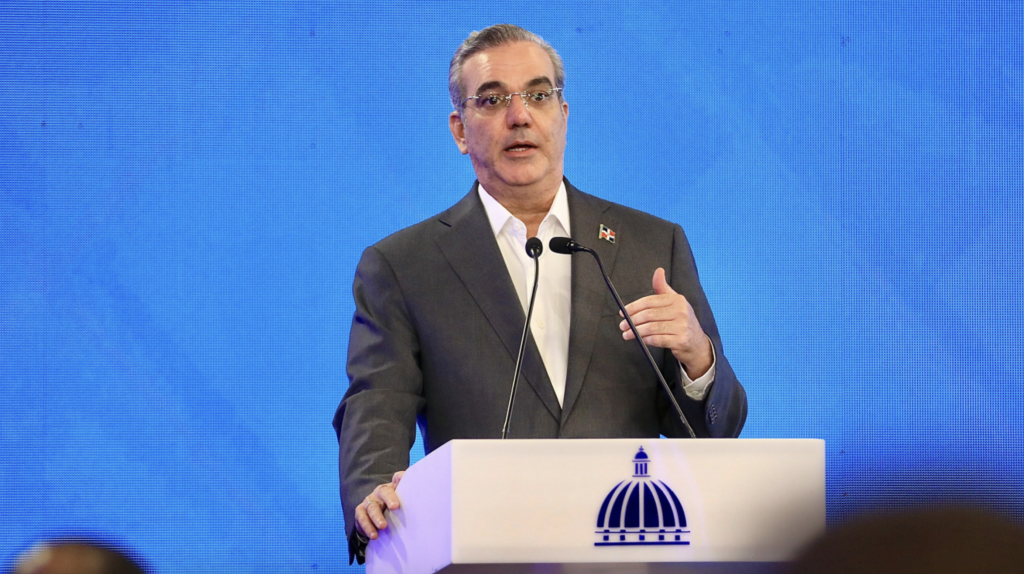
At the La Semanal press conference on 19 August 2024, President Luis Abinader and Hacienda Minister Jochi Vicente explained the newly enacted Law of Fiscal Responsibility. By setting clear rules for government spending, the law would be crucial to the country attaining investment grade status. Vicente emphasized that, in line with international best practices, the legislation includes escape clauses for extreme events such as natural disasters or economic recessions. These clauses would allow for exceptional measures to safeguard the country’s overall stability.
“With this law, we reaffirm our government’s commitment to institutionalism, transparency in fiscal policy design, and balanced public finances,” Vicente stated.
“The law is a fundamental component of the public sector reform process that we will implement over the next four years,” Vicente has stressed.
Minister Jochi Vicente emphasized the government’s commitment to prudent public financial management. He highlighted that the legislation demonstrates the government’s willingness to adhere to a reasonable limit on the annual growth of primary public spending (excluding debt interest).
The Abinader administration is focused on achieving an “investment grade” credit rating ((from AAA to BBB-) to secure more affordable financing options. Increasing foreign and national investment is key to the objective of propelling the country to developed country status in the next 12 years. The ultimate goal is to cap public debt at 40% of the Gross Domestic Product (GDP) by the end of 2035.
Credit rating agencies award an “investment grade” status to countries that demonstrate a very strong ability to meet their financial obligations. Standard and Poor upgraded the Dominican government’s credit from BB- to BB in December 2022, the country’s highest credit rating to date, emphasizing the continued role of macroeconomic stability as the key pillar driving these accomplishments.
Hacienda Minister Jochi Vicente explained that reaching investment grade status will translate into access to capital from abroad and locally at better rates and more and better jobs. He highlighted that the new law imposes spending discipline on the government and is a path for correcting the fiscal deficit. “Discipline may not be of the pleasure of heads of government, but President Abinader has characterized himself for breaking molds,” said Vicente. He said the passing of the law was long due because the DR was one of the few countries in Latin America that had not passed a similar law.
The Fiscal Responsibility Law establishes that Dominican government spending can only grow at the expected inflation level plus 3%. This means at the present time 7%. “It is a rule that obliges us to choose well where we are going to spend. It ends what we call ‘despelote,’ ” said the Minister.
The new law, nevertheless, sets exceptions and Vicente explained that over the past 20 years there have been three times when these exceptions would have been applied, allowing for increased spending to stimulate the economy. These exceptions were the 2003-2004 international banking crisis, the 2008 international financial crisis and the 2020 Covid-19 pandemic. Otherwise, he said in other years there have been spending spurts of 15 to 25%, especially for national elections and changes in government, that have resulted in major growth of indebtedness. This is what the law seeks to correct.
Vicente says the present level of the fiscal debt is “reasonable,” but that the country is paying too much in interest. He said the heavy burden of interest payments is affecting the National Budget. “Every peso we have to pay towards interest is one that we cannot use to better the quality of life of our population,” he stressed.
At present, interest payments on loans and current spending eat up most of the National Budget. The government seeks to relieve the pressure of interest payments to have more funds for needed capital investments. Capital investments have staggered in the country at a time when government spending for employment and social services has been increasing in leaps and bounds.
“The way to drop this is to create a government spending ceiling so that the debt grows less as the economy grows more,” he explained. He emphasizes this is a gradual process that requires the commitment of government.
“By 2035, the objective is that our debt as a percentage of GDP be 40%. It is the level that guarantees that the ratio of interest starts to decline,” he said. He explained it was the percentage Peru and Panama had when they reached investment grade.
Vicente reiterated on several occasions in his remarks during the press conference that the law is not a straight-jacket, but that the exceptions to the spending ceiling are very specific. These are major unpredictable financial and natural situations when the government can suspend the ceiling and resort to spending to stimulate the economy. “Every time the rule is relaxed, then the spending needs to be again tightened for the country to recover to ensure the compliance with the objectives set for 2035 to be met,” he said.
During the La Semanal press conference, President Luis Abinader said the Fiscal Responsibility Law the is not about cutting government spending nor does it focus on the quality of spending. “If there are more revenues, there will be more spending,” said the President. He said the objective of the country is to double the size of the economy by 2036. For this, for the next four years he will continue to motivate national and foreign private investment and work for better government spending.
The law limits tax exemptions to 15 years. The law outlines responsibilities for the application and oversight of the fiscal responsibility framework during the budgetary process to guarantee the sustainability of public finances in the short, medium, and long term.
The Presidency has yet to draft the ruling for the law for its enactment. The Presidency has not yet published the law on the Presidency or Ministry of Hacienda website.
Follow the story in Spanish:
Presidency
Jochi Vicente presentation
La Semanal
Ministry of Hacienda
Diario Libre
Centro Montalvo
Crees
21 August 2024

